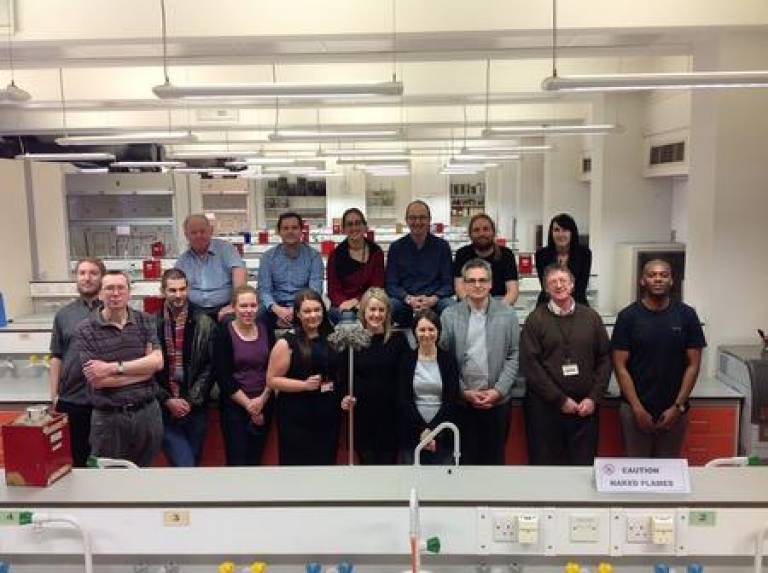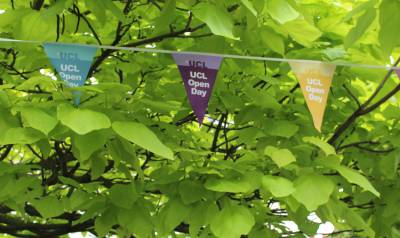UCL Chemistry has won 3 Provost Teaching Awards this year
1 March 2016

Martin Rosillo-Lopez won the PG Teaching Assistant award
Martin is currently in 4th year of his PhD and is supervised by Christoph Salzmann. Alongside his PhD studies he has served as the TA for the Physical Chemistry section.
He has additionally played a significant role in the support of the CHEM160x Chemistry for Biologists lab course and his award recognises the his demonstrable impact on the student experience over the last two years.
He has helped to establish new and improved ways of assessing this course and providing better feedback to the students.
He has helped develop resources in the form of lab manuals, questions and training videos.
Moreover, he has helped this year to train new PhD student demonstrators, ensuring that his knowledge and expertise are not lost.
Andrew Wills has won an individual staff award
He is a Reader in Physical Chemistry, specialising in the synthesis and study of materials with new types of electronic properties.
After a term as Director of Studies, he is taking a breather from a full teaching load and is using his sabbatical to develop new research directions and work with the Connected Curriculum team.
In 2013 he received a Provost's Teaching Award for initiatives that have improved the management of the student experience and the quality of feedback for many thousands of lab experiments.
His 2016 Provost's Teaching Award is for developing a new e-learning space that is able to support the development of mathematical skills across year groups and faculties, FERMAT-vle. This VLE interfaces with Mathematica to generate mathematic practice questions on demand, allowing students to challenge themselves with multiple examples and test themselves against it.
CHEM160X Team led by Andrea Sella won the Team award
Finally the 'CHEM160x Team' led by Andrea Sella won the Team Award. The Chem160x module and the lab course in particular has pioneered new approaches to teaching.
The team took existing practicals and got students to do chemistry on a set of 6-20 variants of the same procedure.
For example they might determine the iron content of one of a dozen dietary supplements bought on the High street or from the internet.
Or they would look at the response of one of six different acids to the addition of alkali. In doing so the students collected a small piece of a larger puzzle that could be later assembled in a whole class seminar.
The aim was to encourage a spirit of inquiry, to make the lab more personal for each student, and to give the entire class a sense of purpose and ownership of the data.
More importantly the entire class could look at each other's results and consider bigger picture issues like error analysis and statistics, intermolecular forces, spectroscopy and other key ideas for chemists.
Contributions to this project have come from a large number of individuals, including but limited to: Andrea Sella, Katherine Holt, Tracey Clarke, Kreso Bucar, Helen Grounds, Martin Rosillo-Lopez, Daren Caruana, Paul McMillan, Caroline Knapp, Rachael Hazael, Hugo Bronstein, Matt Blunt, Crosby Medley, Mike Parkes, Alan Philcox, Phil Hayes, Martyn Towner, Claire Gacki, Dave Webb, Toby Gill, Abigail Mountain, Derek Tocher, Furio Cora and the CHEM160x students.
 Close
Close




